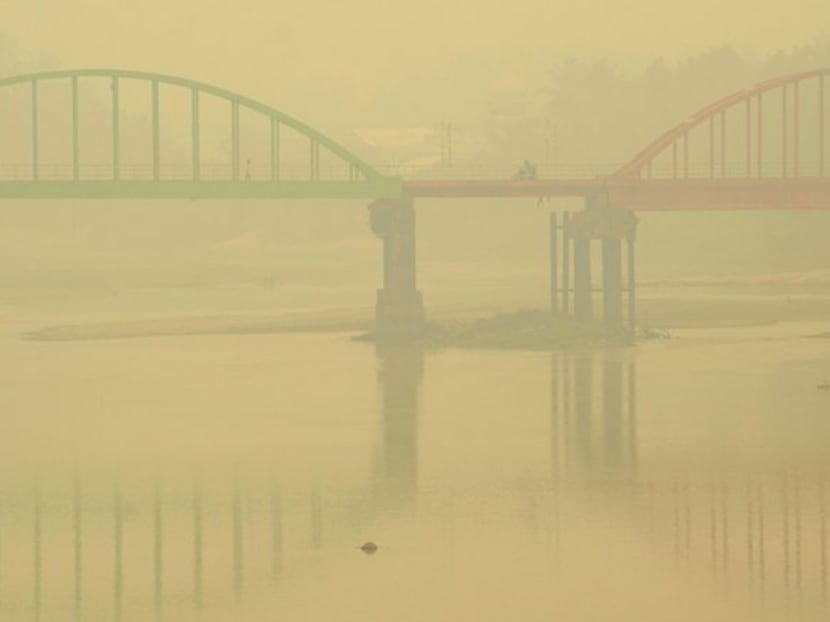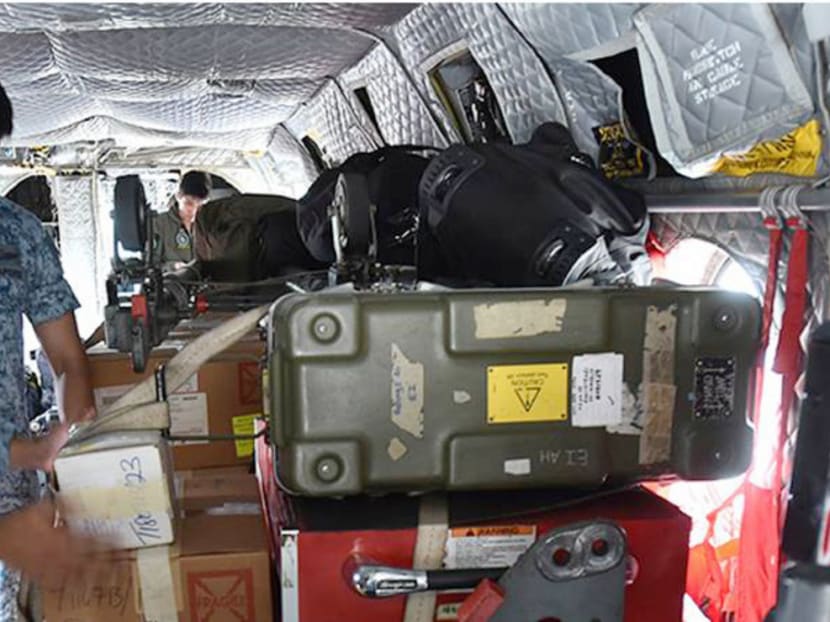Jakarta asks S’pore, 3 other countries for help against haze
JAKARTA — Indonesia yesterday asked for help from Singapore, Russia, Malaysia and Japan to put out forest fires that have caused choking smoke to drift across South-east Asia — the first time such a large-scale international operation will take place in the region to combat the yearly problem.


JAKARTA — Indonesia yesterday asked for help from Singapore, Russia, Malaysia and Japan to put out forest fires that have caused choking smoke to drift across South-east Asia — the first time such a large-scale international operation will take place in the region to combat the yearly problem.
Indonesia is also in discussions with a fifth country, Australia, on how it can help to tackle the crisis.
“We have asked for help,” President Joko Widodo said, adding that Indonesia was hoping for at least three aircraft from Singapore and Russia to help douse the fires that often smoulder underground for weeks in peat deposits. “What we need now are planes that can carry 12-15 tonnes of water, not like the 2-3 tonnes we have now.”
“We hope this will speed up the process because fires on peat land is different from regular forest fires.”
Indonesian foreign ministry spokesman Arrmanatha Nasir added that Jakarta was in talks with Canberra and Kuala Lumpur about how they might help. “We have been using all our resources, but what we see is our progress is not quick enough,” Mr Nasir told Reuters, adding that Indonesia was exploring what roles the countries could play and what equipment they could provide. They aimed to finalise details “as soon as possible”, he said.
Indonesia had repeatedly declined offers of outside help to tackle the smoke, which is mostly caused by companies using fire to clear land for palm oil and pulp wood plantations on Sumatra island and its part of Borneo island. In particular, the government had faced criticism for turning down several offers from Singapore.
Indonesian officials yesterday did not elaborate on why the government has now decided to seek foreign help, although Indonesian media had earlier reported on Wednesday that Jakarta was concerned that Singapore will claim credit for solving the problem.
Singaporean Foreign Minister Vivian Balakrishnan wrote on his Facebook page on Wednesday night that his Indonesian counterpart, Ms Retno Marsudi, had indicated Jakarta will take up Singapore’s offer of assistance following a “good discussion” the pair had on Tuesday.
Responding to TODAY’s queries, a Singapore Ministry of Foreign Affairs spokesperson said yesterday that Singapore has offered a C-130 aircraft for cloud-seeding operations and a Chinook helicopter with a 5,000-litre heli-bucket under-slung for aerial firefighting and waterbombing efforts. A firefighting assistance team from the Singapore Civil Defence Force will be deployed. Up to two C-130 aircraft will also be on standby.
Ms Marsudi is expected to meet her Malaysian counterpart today to discuss the details. Yesterday, Malaysian Defence Minister Hishammuddin Hussein said he has contacted his Indonesian counterpart Ryamizard Ryacudu and Ms Marsudi regarding the next steps.
“For now, help sought by Indonesia involves an aircraft that is able to put out widespread fires. The Malaysian government will fly an amphibious Bombardier CL415MP for the mission to Indonesia,” said Mr Hishamuddin.
“The aircraft is able to drop 6,137 litres of water in 12 seconds while flying at a speed of 130km/h,” he told a press conference.”
Russia has reportedly also offered a Beriev waterbomber to combat the haze. The high-capacity Beriev can carry up to 37,200kg of water and fly up to 3,850km without refuelling.
The transboundary haze has pushed up pollution to dangerous levels across parts of Indonesia, Malaysia, Singapore and southern Thailand; disrupted flights and closed schools on bad days.
Tourism operators are fretting and health authorities across the region have warned people to avoid exercise when the smoke is heavy.
Indonesia routinely brushes off complaints while vowing to act to stop the burning. Various technical and financial cooperation programmes have been carried out with international partners, but year after year, the problem flares in the dry season.
It has been exacerbated this year by the El Nino weather phenomenon that has brought unusually dry conditions. Indonesia’s national disaster management agency said last week it was hoping for rain to help douse the fires by early November, when the north-east monsoon usually starts. AGENCIES






